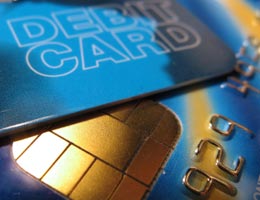If you saw a $20 bill on the street, would you stoop to pick it up? Of course you would. It’s found money. Think of your business as having all this hidden cash in it too. In this series of small business cash flow tips, we’ll help you find uncommon ways to reveal where that cash might be hiding.
We’ve talked about asking your suppliers for discounts. It sounds obvious, but you’d be shocked at how few small businesses actually do this. “It’s such a small amount, what’s the big deal” you’d might say. Just remember, that $20 is no different if it’s on the street or on your Profit and Loss Statement.
For example, did you know there are thousands of businesses who are paying credit card fees they shouldn’t be?
I was having coffee with a bookkeeper who has a very interesting job. He does credit card transaction audits for small businesses. His job is to find ways to reduce the expense of credit card purchases for his clients. He doesn’t charge any money for his service. He gets paid when the client saves the money.
He told me if your business accepts debit cards for purchases, there is a very high likelihood your credit card processing bank is charging you the same interchange fee on debit card as well as credit card transactions. Debit card purchases are very different from credit card purchases.
Debit cards decrement cash that’s been deposited in the account. It’s like taking a withdrawal from a savings account. The bank doesn’t charge you to do that. Nor should it charge a retailer who accepts payment via debit card the same interchange fee it would if the card were a credit card.
A credit card account extends credit to the buyer to be able to make the purchase from the retailer. A credit card interchange rate should always be higher than a debit card.
That’s not always how small businesses gets charged. Check your statements from your acquiring bank. Check to see what rates you are being charged for debit card purchases.
The big deal here is that you should be paying very low or no interchange fees for debit card purchases. A debit card purchase is as good as cash, as you know. In many credit card payment systems, they make little distinction between those purchases, which is the heart of the problem that could be costing you money.
Your bookkeeper should be able to check this for you. Make sure any of your debit card transactions are NOT overcharging your business.
Reduce those fees! Increase your cash! Auditing your credit card transactions is only one simple way to do it. Start with your debit card transactions. You might be surprised at what you find.
Keeping tabs on your cash position is really easy if you know how. Click here to learn. We make it fun!
If you want to learn how to read your financial dashboard and gain access to our Bonus Instant Marketing Manager and Instant Sales Manager courses, click here.
“I doubled my profits after I listened to Dawn”, Portrait Photographer
{ 1 comment }

